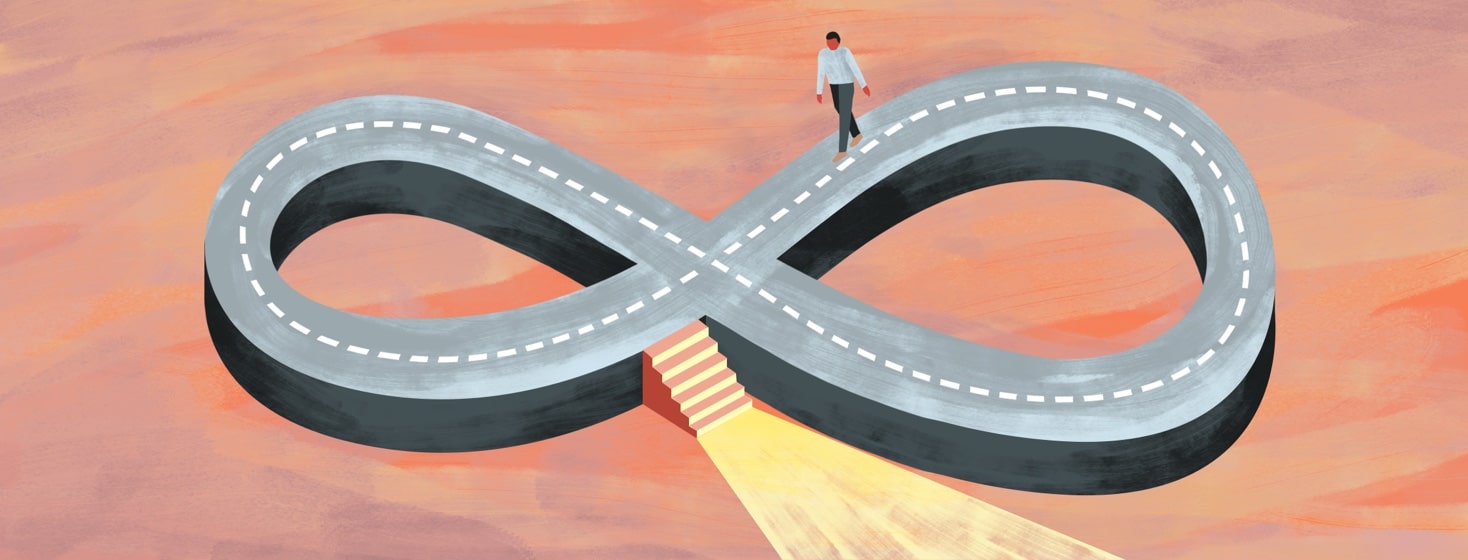What to Know About Hepatitis C Reinfection
Infection from the hepatitis C virus (HCV) leads to chronic hepatitis C in over 50 percent of cases. This happens when the virus avoids the immune system and persists in the liver. Fortunately, current antiviral treatments cure over 90 percent of people with chronic hepatitis C.1
However, it is possible to get infected with HCV again after being cured. This is because an infection does not make you immune to HCV. The risk for reinfection is low, but is higher if you have certain risk factors. Talk to your doctor about how to prevent reinfection, especially if you are in a high-risk group.
What is hepatitis C reinfection?
Current hepatitis C treatments prevent the virus from replicating in the body, often curing patients in 8-12 weeks. Doctors consider you cured if the virus cannot be detected in your blood for 12 weeks after treatment. This is known as a sustained virologic response (SVR).1 Once you achieve SVR, it is unlikely that the cleared virus will return without reinfection. When a virus naturally comes back, this is called "recurrence". However, hep C recurrence happens in less than 1 percent of people.2
But it is possible to get “reinfected” with HCV from someone else after reaching SVR. This is because antiviral drugs only affect current infections. Unlike other viruses, HCV infection does not protect you from future hep C infection. Researchers do not yet know how a first HCV infection affects the risk for another infection; Study results are mixed.3
How common is reinfection after successful treatment?
In a study of 5292 people who achieved SVR after antiviral treatment, the persistent reinfection rate was 1.19 cases per 100 person-years. In other words, if you test 100 people for 1 year after reaching SVR, about 1 will develop a persistent reinfection during that year.4
The study also identified risk factors that increase the reinfection rate, including:4
- Recent drug use
- Recent drug use and born after 1975
- HIV infection
- Problematic alcohol use
Among people with a history of drug use, treating opioid use disorder reduces the risk of reinfection. As access to hepatitis C treatments expands, more recent and current drug users will receive treatment. This means more people at risk for reinfection.4 Harm reduction services and education about reinfection risks are very important during hepatitis C treatment5
How can I prevent reinfection?
There is no vaccine available for HCV. So the only way to avoid developing chronic hepatitis C is through preventative measures. You can help prevent HCV reinfections by avoiding:
- Unprotected sex
- Sharing needles and syringes
- Using injected drugs
- Getting homemade tattoos or piercings
- Sharing razors and toothbrushes
Preventing reinfection also depends on our collective success at eliminating HCV. We must expand access to antiviral treatments by lifting insurance restrictions based on drug use and liver damage. We must integrate harm reduction services, such as opioid use disorder treatments and needle syringe exchange programs, into hepatitis C treatments. And because homelessness increases the risk of reinfection, we must address housing needs.6,7
Talk to your doctor for specific advice on how to prevent reinfection in your specific situation. Some questions you may want to ask your doctor are:
- How likely am I to get reinfected?
- If I get reinfected, how likely am I to develop chronic hepatitis C?
- What can I do to prevent myself from reinfection?
- How would I know if I have been reinfected?
- Can you do any routine tests to monitor me for reinfection?

Join the conversation